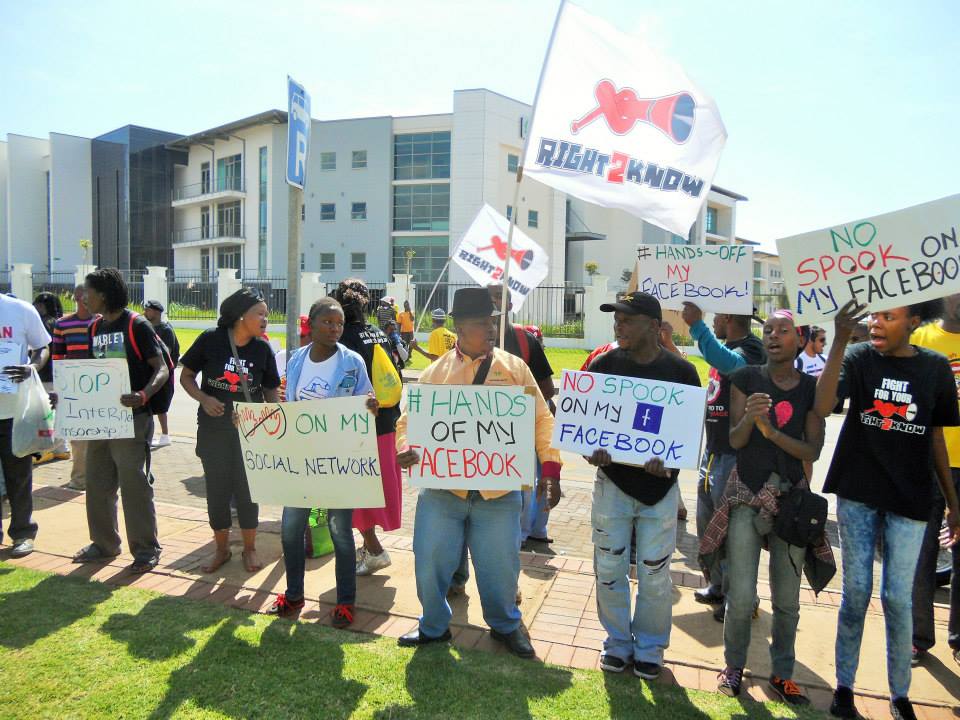Secrecy Bill: Next Stop Constitutional Court
Media, civil society organisations and opposition political have reacted with outrage at the passing of the controversial Protection of State Information Bill, otherwise known as the ‘secrecy bill’. They have confirmed that the next stop is the Constitutional Court.
Most agree that while the bill that was passed last week was much improved from the first few draconian versions of the bill, it still leaves much to be desired in terms of media freedom and what constitutes public interest.
“The limited protection the bill offers journalists and whistle-blowers will no doubt result in an unacceptable environment of secrecy, fear and intimidation. This does not bode well for responsible journalism in South Africa, for the livelihood of those pursuing honest careers in what should be free media, or for the South African public,” says South Africa Freelancers Association (Safrea) chair, Helen Ueckermann.
She said the bill needs to be “weighed and tested against the South African constitution”. Safrea believes this kind of legislation undermines and erodes the sacrifices endured during the Struggle, and all that it stood for. Passing the bill makes a mockery of the constitutional safeguards on free speech.
“The media’s role as watchdog, and its responsibility towards the public to report on classified information exposing corruption or criminal activity, will be severely hampered with the passing of the bill,” says Ueckermann.
Civil society campaigners, the Right 2 Know (R2K) campaign says it remains committed to challenging the bill if it becomes law.
“But on top of that, there is so much more to be done to tackle threats to the free flow of information – from the draconian National Key Points Act, the climate of intimidation facing our whistleblowers, to the rampant profiteering from cell-phone companies that has put a high price on freedom of expression,” R2K said in a statement.
It has launched a petition campaign to ask President Jacob Zuma NOT to sign the bill into an Act.
The South African National Editors’ Forum (Sanef) said the bill still has the potential to be “used as an instrument of secrecy in a democracy that can only thrive in a climate of openness”.
It said President Jacob Zuma has the option to refer the bill to the Constitutional Court. “That is an opportunity he must avail himself of. Members of parliament, too, can send the legislation for constitutional review before it becomes law,” Sanef said.
“We have already seen how a process of public engagement has improved the Bill .A full review by the highest court in the land would significantly advance that process, and help to ensure that remaining concerns about its constitutionality are fully addressed.”
In the meantime, the Democratic Alliance is calling for a recount after ANC chief whip Mathole Motshekga admitted there was a “technical glitch” that saw him vote ‘no’ against the passing of the bill in the national assembly. That wasn’t the only hitch. DA chief whip Watty Watson said former DA MP Gareth Morgan was registered as having voted against the bill. He was not in the National Assembly and is no longer an MP. DA MP Hendrik Schmidt voted against but his vote was not recorded; and five MPs who were not in parliament were recorded as voting against the bill.
“If this is indeed the case, then there is the potential that other votes could have been recorded incorrectly,” Watson said.
“On a bill as controversial as this, and which has a high likelihood of ending up in the Constitutional Court, it is essential that Parliament is not embarrassed for its inability to do its job correctly. I am confident that Dr Motshekga, who was quick to point out that his vote against this unconstitutional piece of legislation was due to a ‘glitch’ will support this request and for an opportunity to vote again.”
The ANC is not convinced and has accused the DA of “clutching at straws”. In a statement issued by Motshekga’s office, his spokesman Moloto Mothapo said the DA was “resorting to some futile filibustering expedition with a hope to frustrate a democratic decision of the National Assembly. It is naïve to hope to quash a democratic process on technicalities”.
He said as the majority party, the ANC was “not losing any sleep regarding the threat to challenge the constitutionality of this Bill in the Constitutional Court”.
The Helen Suzman Foundation said it all.
This article was written by Glenda Nevill and appeared on The Media Online on 30 April 2013.



